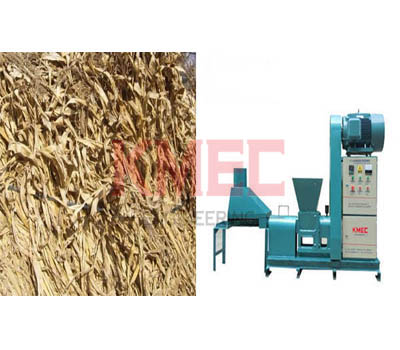Advantages of application of biomass briquetting technology
With the continuous growth of global energy demand and the improvement of environmental protection awareness, finding sustainable alternative energy sources has become the focus of attention of all countries. Among them, biomass energy has attracted much attention because of its renewability and environmental protection characteristics, and biomass briquetting technology is one of the important means to realize efficient utilization of biomass energy. This paper will discuss the application advantages and potential value of biomass briquetting technology.

Firstly, biomass briquetting technology can significantly improve energy efficiency. Biomass raw materials usually exist in loose state, such as straw, sawdust and rice husk. These raw materials are large in volume and low in density, and their calorific value is low and difficult to control when directly burned. After being processed into high-density solid fuel by biomass briquetting machine, it can not only improve combustion efficiency, but also reduce smoke emission during combustion, thus realizing cleaner energy utilization.
Secondly, biomass briquetting technology is helpful to solve the problem of agricultural waste treatment. In agricultural production, a large number of straws and other wastes are often burned or piled up, which not only wastes resources, but also pollutes the environment. Through biomass briquetting machine, these wastes can be converted into high-value biomass fuel, which not only reduces the cost of waste treatment, but also creates an additional source of income for farmers.
Thirdly, biomass briquette fuel has a wide range of applicability. Biomass fuel briquetted by biomass briquetting machine can be used in various scenarios such as home heating, industrial boilers and power plants, and has strong market competitiveness. In addition, compared with traditional fossil fuels, biomass briquette fuel produces lower carbon dioxide emissions during its use, which helps to reduce greenhouse gas emissions and conforms to the global low-carbon development trend.
Finally, biomass briquetting technology also has remarkable economic and social benefits. This technology not only promotes the recycling of local resources, but also promotes the development of related industrial chains, including equipment manufacturing, logistics and transportation, fuel sales and other fields. At the same time, it can also create a large number of employment opportunities, promote rural economic development and help rural revitalization.
To sum up, biomass briquetting technology has obvious advantages in improving energy utilization efficiency, environmental protection, resource recycling and economic development. With the continuous progress of technology and the increase of policy support, this technology is expected to be more widely used in the future and contribute to the realization of sustainable development goals.

